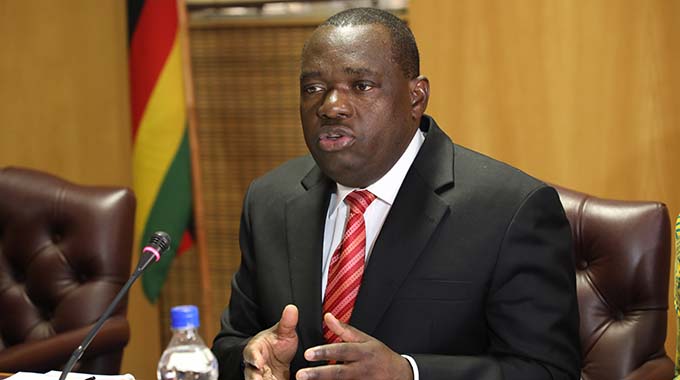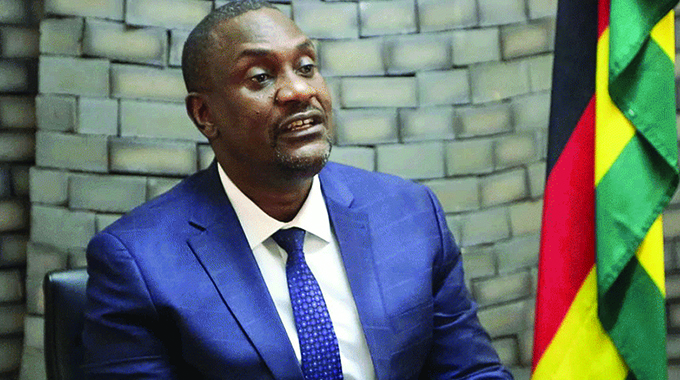Zimbabwe to continue to position self to economic diplomacy

Oliver Kazunga, Senior Business Reporter
ZIMBABWE will continue repositioning itself to advance economic diplomacy with the international community to facilitate foreign direct investment and improve exports, a Cabinet Minister said yesterday.
In a keynote address at an exporters’ breakfast meeting organised by ZimTrade in Bulawayo, Foreign Affairs and International Trade Minister Dr Sibusiso Moyo said trade and investment promotion activities were now the primary and priority areas of focus by Government in all its diplomatic missions.
“Under the new economic order and in order to propel Zimbabwe to its rightful destination of prosperity as an upper middle income economy by 2030 as set out in the Transitional Stabilisation Programme, the Ministry of Foreign Affairs and International Trade is repositioning itself to advance economic diplomacy as a priority to facilitate economic development.
“Trade and investment promotion activities are now the primary and the priority areas of our diplomacy.
“We are saying to all the countries which we are covering the focus is now transactional diplomacy,” he said.
Dr Moyo said it was also imperative for the country to inculcate and entrench an export culture among local enterprises across all sectors against a background of limited exports earnings.
“There is also need for concerted efforts to diversify the export products and markets which we are having now in order for the country to be able to grow the export base.
“Potential is there for Zimbabwe to generate foreign currency through export services such as tourism, business, education and medical,” he said.
Last year, the country’s total exports stood at US$4 billion reflecting a 14 percent increase from 2017 figure of around US$3,5 billion while total imports in 2018 increased by 26 percent to US$6,26 billion from US$4,96 billion in 2017.
Dr Moyo noted that due to the small size of Zimbabwe’s internal market and liquidity challenges facing the country, it was important to export.
“It is also important to utilise market opportunities in the region under the Sadc-Comesa and the East African Community which we are about to ratify as Government and the African Union which has just ratified the African Continental Free Trade Area Agreement (AfCFTA) and the rest of the world beyond the continent.”
He said Zimbabwe has also signed an interim Economic Partnership Agreement with the European Union which has enabled the country to continue having market access into the European Union (EU) on a duty free and quota free basis.
Negotiations were also underway between Zimbabwe and United Kingdom for duty free and quota free market access after the Brexit.
“Our objective is to make sure that we sign bilateral trade agreements, these agreements are signed for the purposes of exporters to achieve access to foreign markets.
“Foreign currency generation is key to sustain the functioning of the economy including sustaining the balance of payments and supporting the productive sectors of the economy,” he said.
Dr Moyo said Zimbabwe’s export composition has been dominated by primary products like minerals and tobacco and challenged the private sector to intensify exporting services, which he said were averaging US$500 million annually.
He said Zimbabwe’s export markets remain limited to a few traditional trading partners with South Africa in 2018 remaining the largest market for Zimbabwean products absorbing 51 percent of total exports.
On second spot was the United Arab Emirates which accounted for 18 percent of Zimbabwe’s total exports, Mozambique (15 percent), Zambia (10 percent), Belgium (two percent) and China (one percent).
In 2018, major import source markets were South Africa which accounted for 39 percent of total imports, Singapore (22 percent), China (six percent), and United Kingdom (four percent) and Japan (four percent).
In this light, Dr Moyo said Zimbabwe was pursuing export-oriented industrialisation strategy agenda under the new economic order to propel economic growth and development through increased investment and exports.
“Government is determined to ensure that appropriate policies and strategies are put in place in order to facilitate the development and growth of exports.
“In this regard the new National Trade Policy and the National Export Strategy to guide the whole country trade policies and practices for the next five years (2019-2023) are under consideration for approval by Cabinet.
“The Trade Policy and Export Strategy are anchored on the Industrialisation Development Policy that will soon be launched and are all intended to advance Zimbabwe’s export-led industrialisation agenda,” he said.
The main objectives of the 2019-2023 National Trade Policy and National Export Strategy are to facilitate increase in total exports of goods by at least 10 percent annually to US$6,4 billion in 2023.
The Government also targets to increase the exports of services by at least 15 percent annually from US$513 million last year to US$1,1 billion in 2023. – @okazunga










Comments